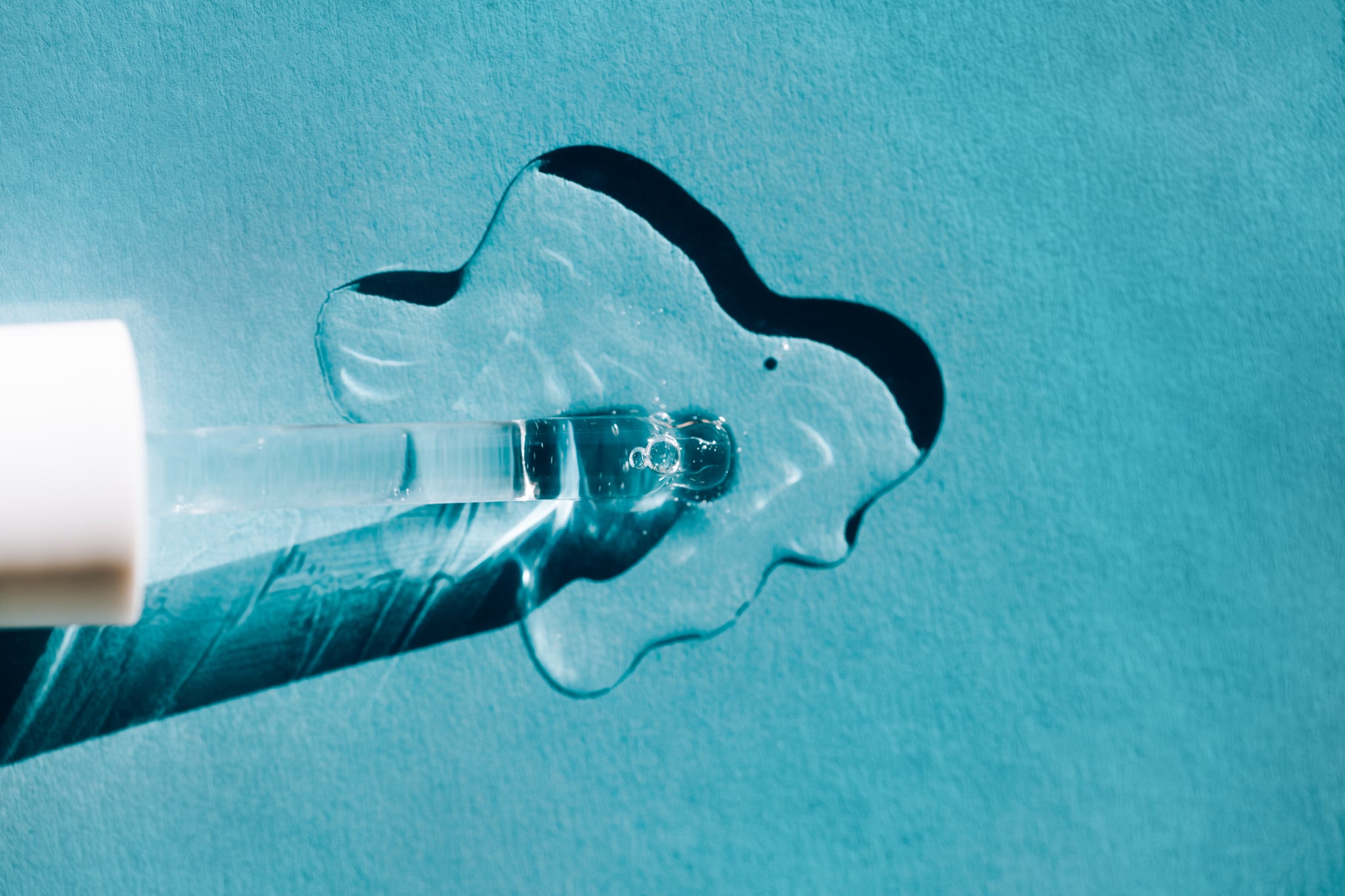
- You may start to notice hypochlorous acid included in your skin care products.
- Hypochlorous acid is a natural molecule in the body, but it can also be synthesized for skin care.
- The skincare ingredient has a variety of benefits, from reducing inflammation to killing bacteria.
If you’re someone who reads your beauty product packaging, you may start to notice a new ingredient recall. In addition to key skincare ingredients like hyaluronic acid and niacinamide, hypochlorous acid is starting to appear more and more—but what is it? And what does he do?
To start, let’s make one thing clear: hypochlorous acid is not necessarily an element the new The ingredient, just as niacinamide was around before we started hearing everyone talking about it on TikTok. Hypochlorous acid hasn’t got its time to shine—yet. There’s a lot this ingredient can do for skincare, so it’s no surprise that you’re starting to see more and more products formulated with it. To get the scoop on hypochlorous acid, keep reading.
What is hypochlorous acid?
Hypochlorous acid, abbreviated as HOCl, can be found in the body as a natural molecule. “We’ve known for a long time about hypochlorous acid,” board-certified plastic surgeon Kelly Klein, MD, FACS, tells POPSUGAR. “This is what white blood cells are made of to fight infection and kill bacteria and viruses.”
According to the Cleveland Clinic, “HOCl attacks invading pathogens, breaking down cell walls before destroying unhealthy invaders.”
But the hypochlorous acid found in beauty products does not come from the body. “We’ve recreated HOCl into a high-quality formula that mimics the skin’s ability to protect and repair itself,” says Karen Hayes, CEO and co-founder of S’eau Prima. “It’s a powerful molecule that naturally restores the skin to its healthy state.”
Hypochlorous acid benefits
Hypochlorous acid is commonly used in the medical field, and has a variety of benefits for the skin. It can soothe irritation, reduce inflammation, improve the skin’s moisture barrier, protect against environmental aggressors, and balance the skin’s pH levels. But the long list of benefits does not stop there.
“There has been a lot of discussion within the plastic surgery world about its use as a CREE around implants because it kills bacteria, inhibits biofilms and is safe for use inside the body,” says Dr. Keelen. “But also for treating minor wound problems like spit threads, which is a chronic problem in plastic surgery patients.”
What makes hypochlorous acid unique is that it can be used almost anywhere. “It’s a great ingredient because it’s so safe,” says Dr. Keelen. “You can get it in patients’ eyes, noses, ears, mouths, any opening, and it won’t harm them, which is very rare for disinfectants and disinfectants.”
This is also the reason why many puncturers recommend an aftercare ingredient to clean the puncture hole and prevent infection.
Tweet embed Hypochlorous acid 👑 #doctor_doctor #asrpartner #dermatologist #skin care #hypochlorous acid
^ Eagle Arms – Chris Alan Lee
Use of hypochlorous acid on sensitive skin
Unlike some ingredients that are great but not great for those with irritable or sensitive skin, hypochlorous acid can really be used by everyone – including those with eczema and rosacea. “It doesn’t damage tissues, it’s safe for acne-prone skin, and it’s accepted by the National Eczema Association,” board-certified dermatologist Munib Shah, MD, a board-certified dermatologist, says in a TikTok video about the ingredient.
Dr. Keelen says she has seen hypochlorous acid used primarily in two ways. The first is to reduce the chance of infection. “It reduces the number of bacteria, it reduces the numbers of fungi and viruses,” she says. “It just keeps the critters away, which is really helpful when you have any kind of skin condition. Because having eczema is bad enough, but having eczema makes it 10 times worse.” The same can be said about acne and psoriasis.
The second most common use of hypochlorous acid is for infections by blocking the release of histamine. “When you have hives or an allergic reaction, your body releases histamine, and that’s what causes the swelling,” says Dr. Keelen. “Hypochlorous acid does a really great job of preventing this from happening.”
The best hypochlorous acid products
A little hypochlorous acid goes a long way, but it should be used regularly to see results – think frequency more than quantity. You can find it in a variety of different products, from face mists, like Foundational Face Mist ($48), to serums, like SOS Intensive Redness Relief Serum ($34).
“It’s a choice of form—we know hypochlorous acid works best as a face mist because it’s easy to apply, delivers even application of the ingredient, and helps other products you use absorb better, making them more effective,” Hayes says.
Tower 28 was initially launched with a face spray called SOS Daily Rescue Facial Spray ($28) before expanding into a serum form. “The serum was amazing for many patients who really liked the spray – [it] It takes it to the next level,” says Dr. Keelen.
Simply apply it – either by spraying it directly onto the skin or patting it – and go about your day while the hypochlorous acid works its magic.





